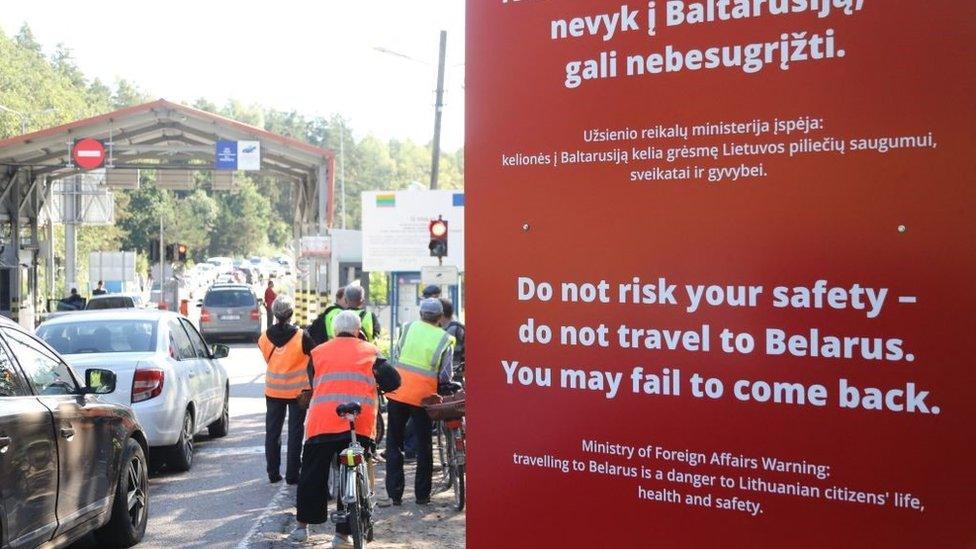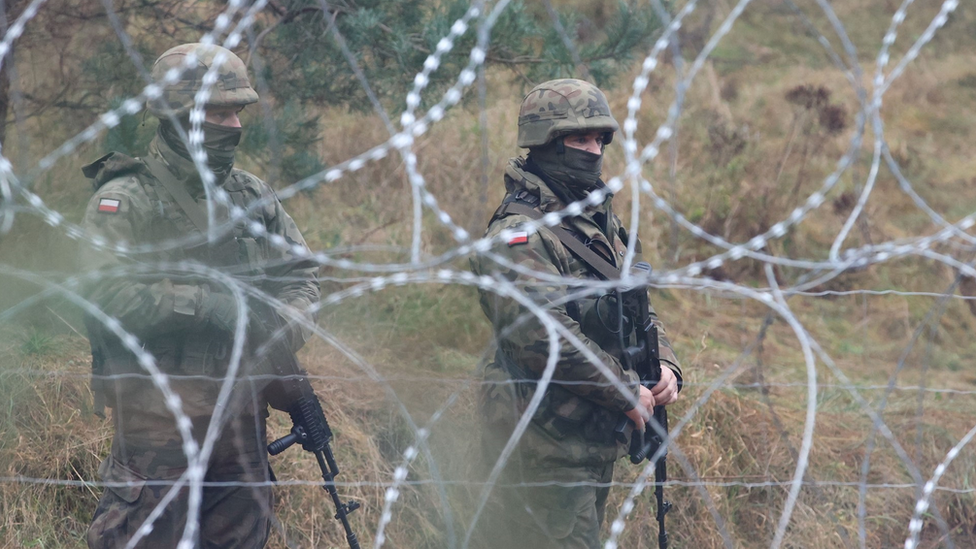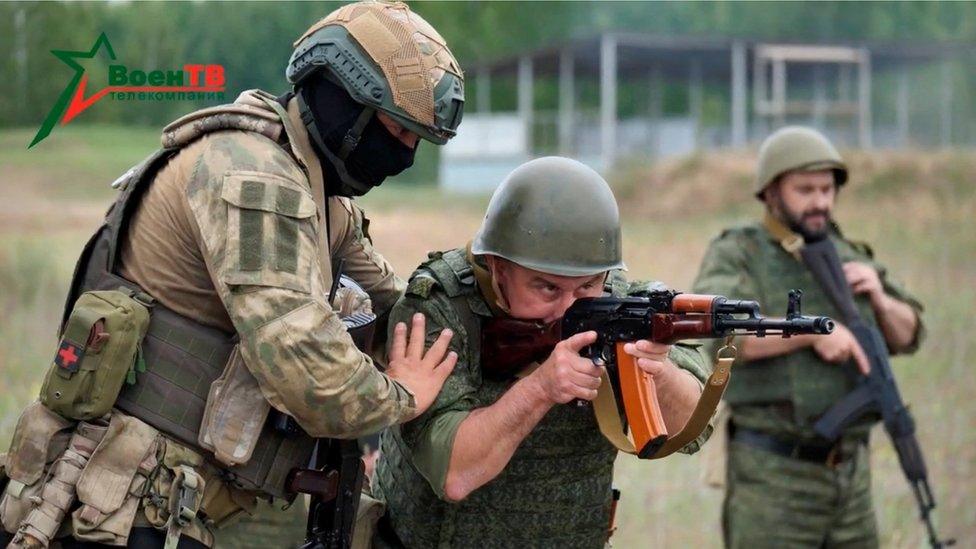Lithuania closes two Belarus border crossings
- Published

Sumskas is one of the crossings that will be closed
Lithuania is to close two of its six border crossings with Belarus.
The two rural crossing points, which are not used by commercial vehicles, will be closed from Friday.
The government said the decision was in response to changes in the geopolitical situation and threats to national security, as well as smuggling.
Belarus's western neighbours have increased security since Minsk granted shelter to fighters from Russia's Wagner mercenary group.
This came as part of a deal to end a brief mutiny in Russia by Wagner in June.
The Lithuanian government said the crossings at Tverecius and Sumskas will be closed, and traffic will be diverted to Medininkai, the largest of its six checkpoints.
Deputy Minister of Transport Agnė Vaiciukeviciute told the Associated Press that the closures were temporary.
Poland has also sharply restricted access from Belarus, and on Tuesday, Latvia ordered reinforcements to its border.
Latvian PM Krisjanis Karins said Belarus needed to know his country was serious about securing its borders for the good of its own people, and the rest of Europe.
"We have seen that this summer the pressure from Belarus is not decreasing, but gradually increasing," Mr Karins said.
"We are simply increasing our presence and sending a clear signal to both our own society and the Belarusian authorities that this is no joke."
Poland announced last week it was sending 10,000 extra troops to its border with Belarus following an alleged incursion by Belarusian military helicopters.
Its government says they'll help to guard against mercenaries from Russia's Wagner group who have moved to Belarus after Polish PM Mateusz Morawiecki warned that Wagner fighters could pose as migrants and enter the EU.
Concerns have been rising among the neighbours of Belarus - a close ally of Russia - since June, when a mutiny by Wagner challenged President Vladimir Putin's authority.
A deal ended a 24-hour rebellion, which saw the troops seize the southern Russian city of Rostov and march on Moscow - aborting the march just 200km (124 miles) from the capital.
Under the agreement, Wagner fighters were told they could either join the regular Russian army or go to Belarus.
- Published10 August 2023

- Published15 July 2023
